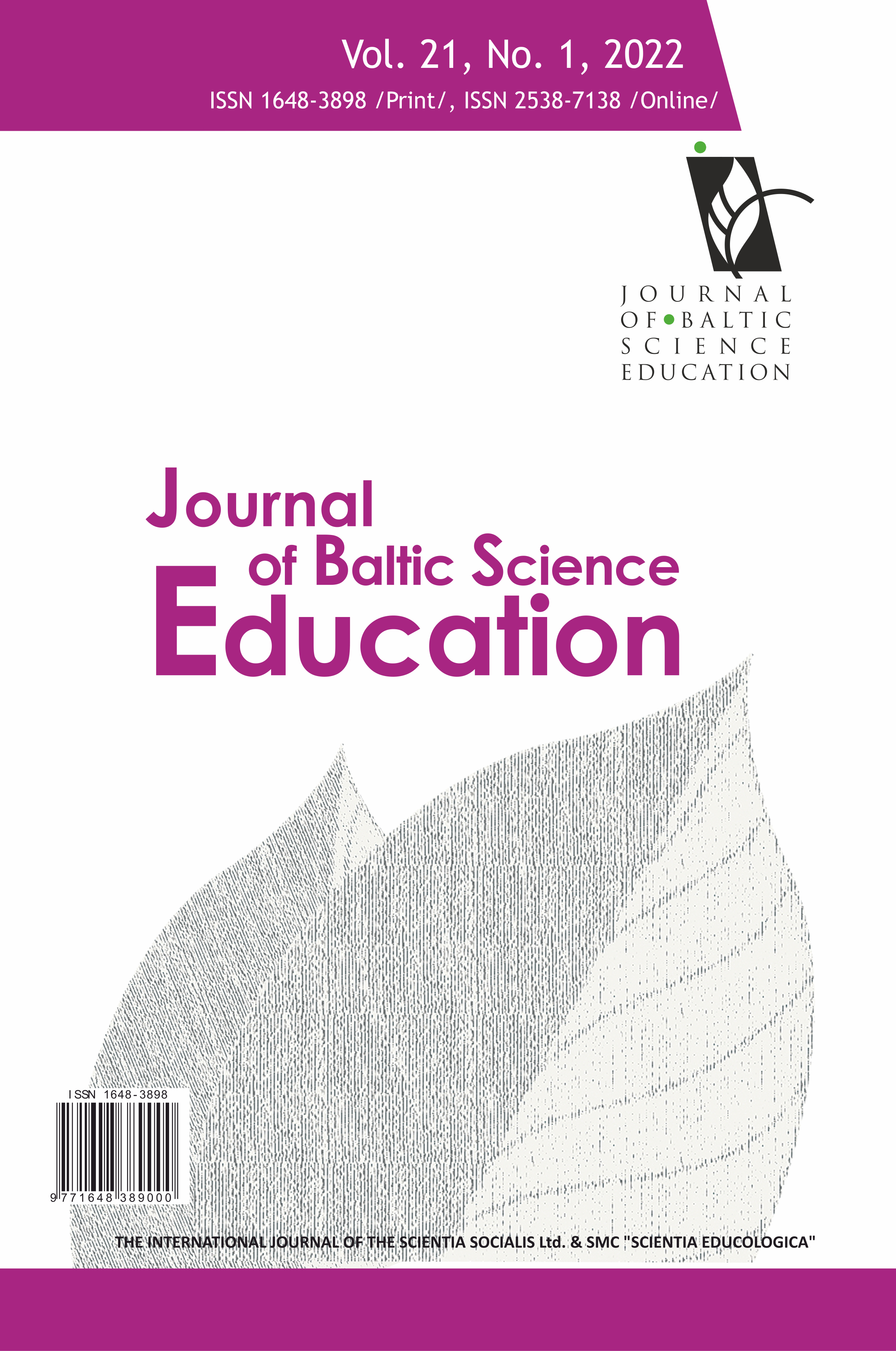USING A THREE-TIER MULTIPLE-CHOICE DIAGNOSTIC INSTRUMENT TOWARD ALTERNATIVE CONCEPTIONS AMONG LOWER-SECONDARY SCHOOL STUDENTS IN TAIWAN: TAKING ECOSYSTEMS UNIT AS AN EXAMPLE
USING A THREE-TIER MULTIPLE-CHOICE DIAGNOSTIC INSTRUMENT TOWARD ALTERNATIVE CONCEPTIONS AMONG LOWER-SECONDARY SCHOOL STUDENTS IN TAIWAN: TAKING ECOSYSTEMS UNIT AS AN EXAMPLE
Author(s): Jun-Hui Yeo, Hsi-Hsun Yang, I-Hsuan ChoSubject(s): Education, School education, Pedagogy
Published by: Scientia Socialis, UAB
Keywords: Three-Tier Diagnostic Instrument; ecosystem concepts; alternative conceptions; lower-secondary students;
Summary/Abstract: This research is conducted to identify the scientific conceptual cognition of ecosystem and the corresponding alternative conceptions by lower-secondary school students in Taiwan. Concept mapping, interviewing, and two-tier diagnostic test cannot make explicit reasoning pathways that students may use. Therefore, its purpose is to develop, validate, and utilize a three-tier multiple-choice diagnostic instrument for the ecosystem concept (TDIEC). The instrument can assist teachers in analyzing their students’ reasoning. This does not only distinguish alternative conceptions from lack of knowledge but also determines the percentages of false positives and false negatives. One hundred and six students were tested with this instrument in Taiwan. The data analysis reveals common alternative conceptions shared by students, indicating that 35.59% of the samples had inaccurate conceptualizations of ecosystems. Common alternative conceptions of ecosystems include the following: (i) Only biological components constitute an ecosystem; (ii) The Venus flytrap and pitcher plants are preys; (iii) Competition is synonymous to predation; (iv) Ecological balance refers to the sustainable circulation of energy and matter in the environment; and (v) The simpler the species, the more stable the ecosystem. It concludes with the interpretation of the results, suggestions for the application of the TDIEC, and correct alternative conceptions in Ecology classes.
Journal: Journal of Baltic Science Education
- Issue Year: 21/2022
- Issue No: 1
- Page Range: 69-83
- Page Count: 15
- Language: English

